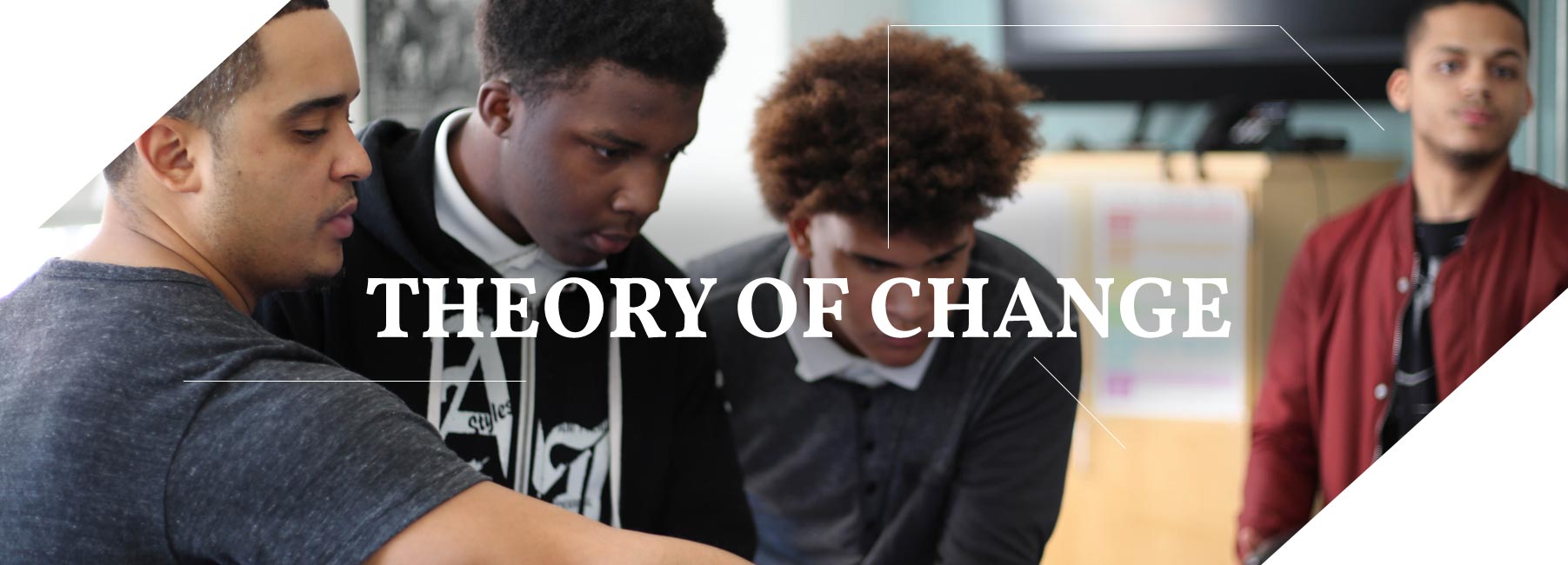
Theory Of Change
CTP’s theory of change involves providing program participants with experiential learning experiences that highlight connections between students’ interests, common core subject matter, and real world problem-solving. Workshops and projects led by culturally relatable program mentors aim to help students better establish positive bonds with educators, lift students’ self-efficacy, and improve academic performance. Our target participants are disengaged high school aged youth, many of who desire symbolic trappings of success (luxury cars, fancy clothes, expensive jewelry) without being able to visualize a practical path to legally attaining them. Self-efficacy is generally understood as the belief one has in their ability to respond to and control environmental demands and challenges (Bandura, 1977). It has been shown to have a significant positive correlation with optimism, action orientation, and hope for success while negatively correlating with depression, anxiety, and fear of failure (Schwarzer & Jerusalem, 1995). Through a series of collaborative achievements led by professionals and celebrities youth develop more confidence and ready themselves to take on new challenges. By boosting self-efficacy in disengaged youth we hope to increase academic achievement and interest in attainable career options or paths of entrepreneurship. In using interest areas, we are able to increase engagement making what they deem to be insipid subject matter palatable. According to research students who participate in experiential learning see and improvement in self-efficacy and 21st Century workforce skills (Parker, 2000, Darby, 2016)

Measurable goals: Improved Engagement and Improved Self-efficacy
CTP shares the view of engagement points as identified in the “Untapped Potential - Engaging All Connecticut Youth” study, which will be used for the measurable goals of this project. For disengaged youth CTP will measure student’s attendance, behavior, and academic progress through biweekly reports by school faculty and comparison of grades and attendance of students before and after acceptance in CTP programming. For disengaged youth, effectiveness will be measured by the participant either re-enrolling in an educational program, or expressing the desire to do so.
Although CTP has yet to formally measure the effects of its programming on the self-efficacy of participating students, anecdotal testimony from program mentors and other stakeholders (parents, teachers, and the students themselves) suggests that CTP programming is helping to boost participating students self-efficacy. Self-efficacy is generally understood as the belief one has in their ability to respond to and control environmental demands and challenges. As such we intend to use an adapted version of the General Self-efficacy Scale in a pre-test post test design to assess the effects of CTP programming on the self-efficacy of current and future participants. Monitoring and working to better our ability to positively impact students self-efficacy will be of paramount importance as we endeavor to achieve CTP’s stated goals of helping students become success oriented, critically thinking, adept problem-solvers.
